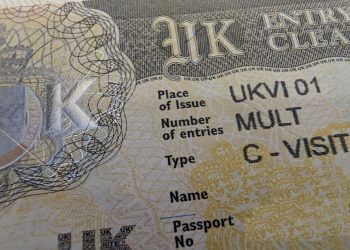As an international student or temporary worker applying for a Temporary Resident Visa (TRV) to Canada, one of the most common reasons for rejection is the lack of proof that you will return to your home country when the visa expires. Immigration officers have significant discretion when determining TRV applications, and this judgement can be based on various factors, including delivery instructions from Immigration, Refugees and Citizenship Canada (IRCC).
Immigration officers may reject a TRV application if they feel there is a lack of family ties between the applicant and their home country. To address this, there are several ways to prove to Canadian immigration authorities that you intend to return to your home country at the end of your stay.
One way to demonstrate your intent to return is through proof of future employment opportunities in your home country. If you have been promised re-employment by your current employer, documented proof of this commitment can be used to show that you will return home after completing your stay in Canada.
Additionally, owning or leasing a property in your home country can also serve as evidence of your intention to return. Documents such as a lease or mortgage agreement can prove that you have an asset to return to at the end of your time in Canada.
Furthermore, if you have job offers from employers in your home country, these letters can be used as proof of your intent to return. Similarly, financial statements, stocks, bonds, and other assets in your home country can also demonstrate your commitment to returning once your Canadian permit expires.
It’s important to note that the strength of Canadian immigration applications often lies in the level of detail provided. Therefore, submitting multiple documents that prove your intent to return home can strengthen your application. Detailing financial statements, property ownership, job offers, and future commitments can help validate your intent to have a temporary stay in Canada.
A recent development in Canadian immigration is the validation of dual intent as a way of navigating around the need to prove you will return to your home country after your TRV expires. As of April 5th, IRCC has altered rules that now make it necessary for immigration officers to acknowledge “that having two intents, initially for temporary residence and eventually for permanent residence, is legitimate.” This means that you may not need to leave Canada when your study or work permit expires if you can successfully demonstrate dual intent.
In conclusion, while there are multiple reasons a TRV may be rejected, providing detailed evidence of your intent to return to your home country is essential to increase your chances of approval. By following these guidelines and understanding the recent developments in Canadian immigration, you can navigate the application process more effectively.
If you want further assistance in understanding the TRV application process and increasing your chances of approval as a Canadian study permit applicant, you can schedule a Free Work Permit Consultation with the Cohen Immigration Law Firm.
Still have some travel questions? Ask in our Travel WhatsApp Group.








